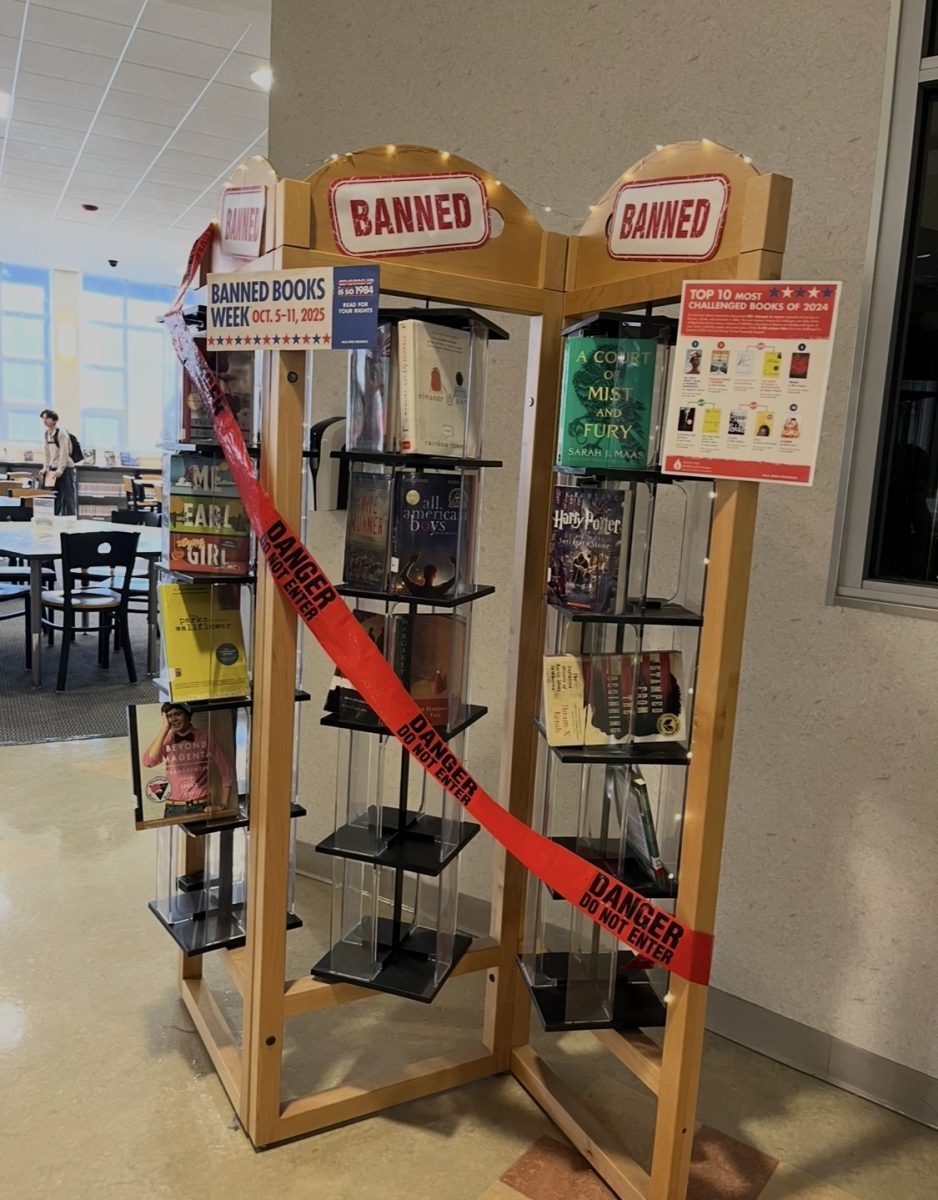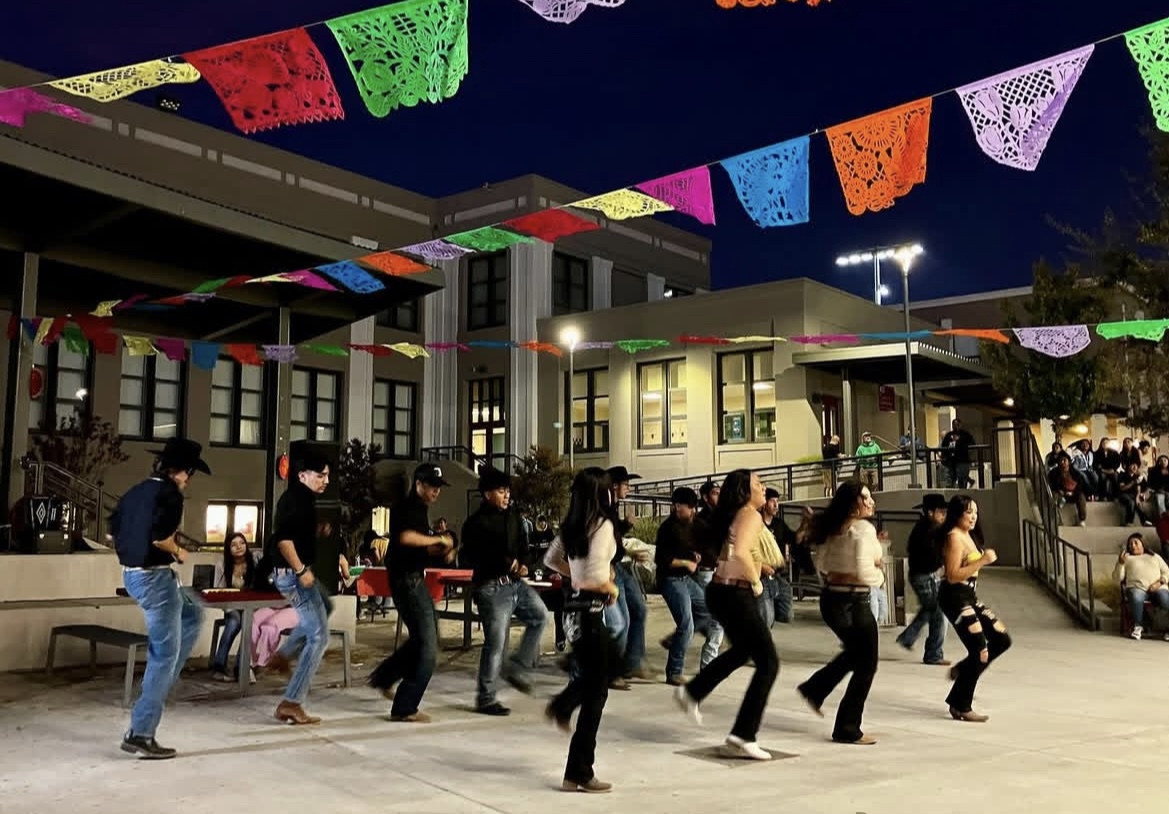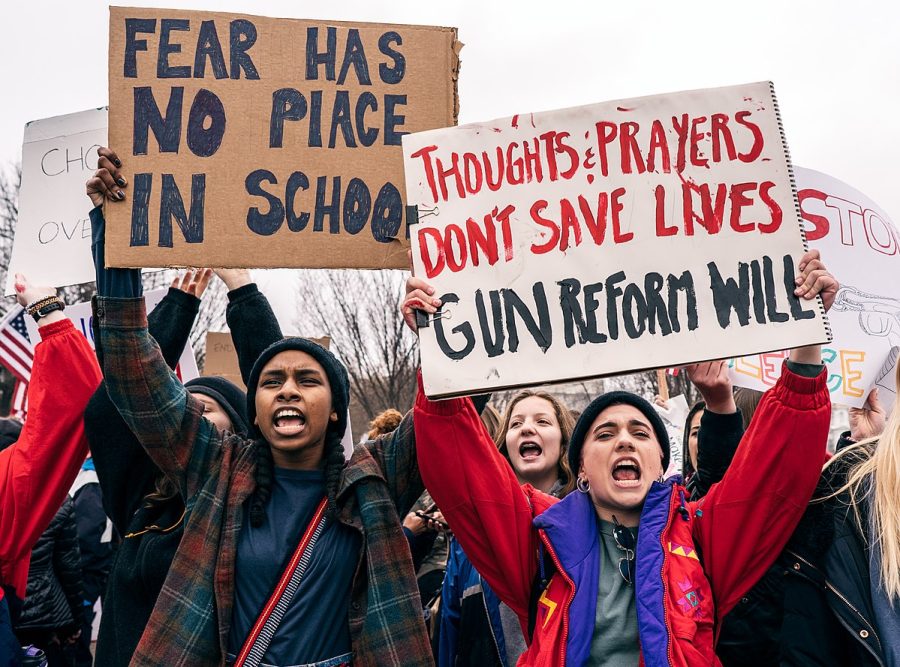Thoughts and Prayers Aren’t Enough. We Need Expanded Background Checks on Gun Purchases
December 9, 2022
Gun control is far from being a new issue in America, yet the situation continues to worsen as time goes on. Last year, our country saw 690 mass shootings over the course of 365 days. That averages to almost two mass shootings every day. In 2015, there were 372, just over one each day.
But the issue isn’t just with mass shootings. More than thirty-nine thousand people have died from gun violence this year, with 21,000 of those deaths being from suicide. The availability of firearms in America is an epidemic, and it’s causing the deaths of people across the country.
So why do people own guns in the first place? A survey by Gallup shows that in 2021, most gun owners keep them for personal security or hunting. Surface level, this is not a problem, but the availability of guns has a direct correlation with death rates, especially related to suicides.
A multitude of studies done by Harvard University show that “states with higher levels of household gun ownership also have higher rates of firearm suicide and overall suicide.” This is due to the fact that firearms can much more easily and consistently inflict fatal wounds on people when compared to drug overdoses or other common methods. The numbers can range from over a 90% fatality rate with a firearm to under a 5% fatality rate with the more common methods. Guns themselves don’t raise suicide attempt rates, but instead sharply increase the success rate of the attempts. Simply having a weapon in a household, no matter what the reason may be, allows for easy access to a quick death for anyone in said household.
America’s rate of mass shootings is a constantly concerning topic. It’s important to understand that many shootings with intent to kill are caused by hate, mental instability, or other similar reasons. For example, on November 19, 2022, an LGBTQ+ club, a safe space for many people of the community, was attacked. Five were killed and twenty-five were injured. Three days later, a shooting happened at a Walmart, where an associate, who worked at that very Walmart, shot and killed six people and injured at least another six. Later, a note was found on the shooter’s phone where he made references to a “demonic aura” and stated that he had “failed god.”
Within three days of each other, one man targeted people out of prejudice and another killed his colleagues while mentally unstable.
I want to point out this fact to drive home an important point. Gun ownership as a whole isn’t the problem, as many people can be responsible with a firearm. While it contributes to suicides and other violence, I think the first problem America needs to take a closer look at is who is allowed to get their hands on guns.
An important step to the solution is background checks. Although our country already has checks on gun purchases, a more extensive system is clearly in need of implementation. According to Brady United, a nonprofit organization fighting against gun violence, a whopping 97% of Americans want expanded background checks on gun purchases. This would mean the country would be more aware of the kind of person they were handing off a firearm to, and could do a better job at rejecting people with dangerous backgrounds.
Under current federal law, there is also no waiting period required for gun purchases. A waiting period would mean that after purchasing a gun, the person who made the purchase would have to wait a specified amount of time before receiving the gun. It’s been proven in the few states that do have waiting periods that this is a reliable way to reduce gun homicides by up to 17% and suicides by up to 51%.
The Walmart shooter bought his gun just hours before he shot and killed his colleagues.
With something as simple as a waiting period and a background check before giving him the gun, this shooting, and many more, could have been prevented. A waiting period would prevent mentally unstable people from making an impulsive decision to buy a firearm and using it for something harmful to others or themselves.
“It’s background checks and closing the loopholes on the checking system,” says Ian Johnstone, the founder of Gun by Gun, a nonprofit that offers buybacks to safely allow for disposal of firearms. “It’s preventing people that we know [are dangerous], like people with a restraining order, from legally buying guns.”
Looking back at the Gallup poll, the biggest reason Americans do not want expanded background checks is because it would be a violation to our 2nd Amendment, “the right to bear arms.” But background checks don’t violate this right. Those who are fit to own a gun, and wouldn’t be a danger to society with one, will still get their firearm.
“I don’t think there are good guys and bad guys,” said Mr. Johnstone. “People make good decisions and make bad decisions, and if you happen to have a gun on you when you make a bad decision, that’s when you become a bad guy.”
Is maintaining a right really more important than thousands of lives? Will it hurt our country that bad to stop prejudiced extremists and mentally unstable people from obtaining a means for mass murder? Do we need to give murderers weapons because of a right written down 230 years ago, when guns shot one bullet and took half a minute to reload?
Now, think back to May 24, 2022 in Uvalde, Texas. An eighteen-year-old entered Robb Elementary School and fatally shot nineteen students and two teachers, and injured seventeen others. Elementary schoolers. The shooter had an AR-15 style rifle that is available for anyone over the age of eighteen to purchase under federal law.
Young people and children are in unacceptable danger. This year, 292 children (age 0-11) have been killed due to gun violence. On top of that, 1,225 teenagers (age 12-17) have been killed.
While there are millions of ways we can and should make changes to our country’s gun control policies, change happens slowly, and we have to focus on one step at a time. In my eyes, the next step is expanded background checks. It would instantly reduce gun violence, and many Americans already support the idea, meaning it won’t be as hard to turn into reality as other policies might be.
On a final note, I advise you to check this website, the Gun Violence Archive, after this article has been published, and see how much the numbers have risen for 2022. I guarantee that they will be higher than the numbers stated in this article.
If you feel strongly about this subject, remember that there are many ways that you can help. Contact your representative. Check out nonprofit organizations against gun violence and volunteer, donate, or simply spread the word. This does not have to be a polarizing political issue. Americans are dying, our children are dying, and things are getting worse. “Thoughts and prayers” won’t cut it any more. We need real change.






































